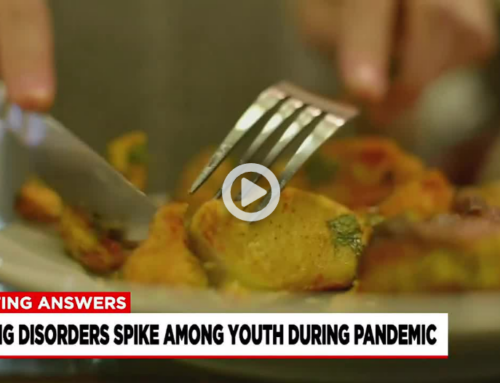What is ARFID?
Avoidant/Restrictive Food Intake Disorder, ARFID for short, is an eating disorder impacting thousands of Americans. Often thought of as “extreme picky eating”, it can result in failure to gain developmentally appropriate weight, malnutrition, nutrient deficiencies, and psycho-social impairment. Although individuals have struggled with its symptoms for far longer than it has been a diagnosis, many are unfamiliar with what ARFID is and how it impacts individuals. Learn more about ARFID: What is ARFID? A Video Explainer
There are some common misconceptions when it comes to ARFID and adults.
1. ARFID only affects kids
ARFID is frequently believed to only impact children and adolescents. The idea of being a “picky eater’’ is often associated with kids, which can make it difficult to recognize and validate adults who suffer with ARFID. Despite the limited amount of data on adults with ARFID, researchers have determined that roughly 9.2 percent of adults with eating disorders meet the criteria for ARFID.
2. Individuals with ARFID eat like kids
It is often assumed that those who suffer with ARFID limit their intake to foods that are considered “kid foods” like chicken tenders and macaroni and cheese, even though these foods can be for anyone. There are adults with ARFID who love a variety of foods, and this eating disorder doesn’t always limit people to the foods that fall within the kid food stereotype.
3. There’s no help. Things won’t change.
People who suffer with ARFID might believe that there is no treatment for them. This eating disorder isn’t typically brought to the forefront of conversation, and it can be easy to assume that there isn’t treatment out there. However, treatment centers like Walden offer help to those who are suffering. Walden offers electives in PHP and IOP for adults that focus on understanding and treating the three subtypes of ARFID: sensory sensitivities, fear of aversive consequences, and lack of interest.
4. ARFID doesn’t have consequences for adults
ARFID can be consequential in the lives of both kids and adults creating devastating impacts. ARFID impacts adults in ways that might be unexpected. Adults may find they struggle to advance professionally if they are unable to attend company outings or client dinners. Additionally, they may find social and romantic outings also impacted by either their limited intake or fear of aversive consequences.
5. You have to be underweight to have ARFID
In general, an issue in the eating disorder field is the discrepancies in treatment between those who are underweight and those who are weight neutral. Underweight individuals tend to get more attention, and those who are weight neutral can fly under the radar. Weight neutral people who suffer with ARFID might be overlooked and assumed to be picky eaters, when in reality, they deserve treatment for the disorder that they are suffering with.
We’re here to help
We know finding care can be tough especially for adults struggling with ARFID. That’s why Walden is here for you. Check out our ARFID specialty virtual IOP here. If you are concerned that you, or a loved one, may have ARFID, please reach out by completing the form on this page or email us at intake_coordinators@waldenbehavioralcare.com.







